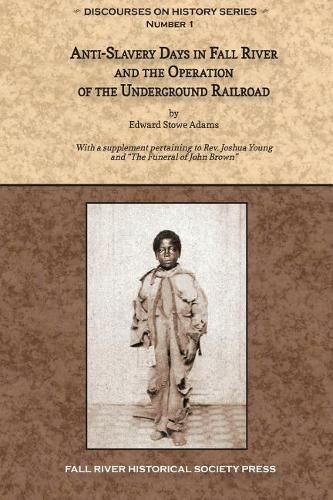Readings Newsletter
Become a Readings Member to make your shopping experience even easier.
Sign in or sign up for free!
You’re not far away from qualifying for FREE standard shipping within Australia
You’ve qualified for FREE standard shipping within Australia
The cart is loading…






Edward Stowe Adams (1856-1948) was a lifelong resident of Fall River, Massachusetts. His father, Robert Adams (1816-1900), was the founder of Adams Bookstore, and was closely identified with the civic, political, and humanitarian affairs of Fall River. He and his wife, n e Lydia Ann Stowe (1823-1904), were staunch abolitionists, with Adams being an active conductor on the Underground Railroad. Mrs. Adams, one of the first professionally trained teachers in the United States, was an advocate for women’s rights, assisting working women in various capacities. Having been brought up in an enlightened household, it is no surprise that Edward’s strong moral convictions and civic and social responsibilities are ever present throughout Anti-Slavery Days in Fall River and the Operation of the Underground Railroad.Adams’ exploration of the anti-slavery movement in Fall River and the workings of the Underground Railroad is perceptive and informative. Drawing extensively from published and unpublished works and the personal papers of noted Fall River abolitionists, the author provides a seldom-seen look at the fight against slavery, with an insider’s perspective and sentiment. Adams’ Anti-Slavery Days in Fall River provides an intelligent and informative look at a tumultuous era in the history of the United States, but, more specifically, Fall River, Massachusetts.
$9.00 standard shipping within Australia
FREE standard shipping within Australia for orders over $100.00
Express & International shipping calculated at checkout
Edward Stowe Adams (1856-1948) was a lifelong resident of Fall River, Massachusetts. His father, Robert Adams (1816-1900), was the founder of Adams Bookstore, and was closely identified with the civic, political, and humanitarian affairs of Fall River. He and his wife, n e Lydia Ann Stowe (1823-1904), were staunch abolitionists, with Adams being an active conductor on the Underground Railroad. Mrs. Adams, one of the first professionally trained teachers in the United States, was an advocate for women’s rights, assisting working women in various capacities. Having been brought up in an enlightened household, it is no surprise that Edward’s strong moral convictions and civic and social responsibilities are ever present throughout Anti-Slavery Days in Fall River and the Operation of the Underground Railroad.Adams’ exploration of the anti-slavery movement in Fall River and the workings of the Underground Railroad is perceptive and informative. Drawing extensively from published and unpublished works and the personal papers of noted Fall River abolitionists, the author provides a seldom-seen look at the fight against slavery, with an insider’s perspective and sentiment. Adams’ Anti-Slavery Days in Fall River provides an intelligent and informative look at a tumultuous era in the history of the United States, but, more specifically, Fall River, Massachusetts.